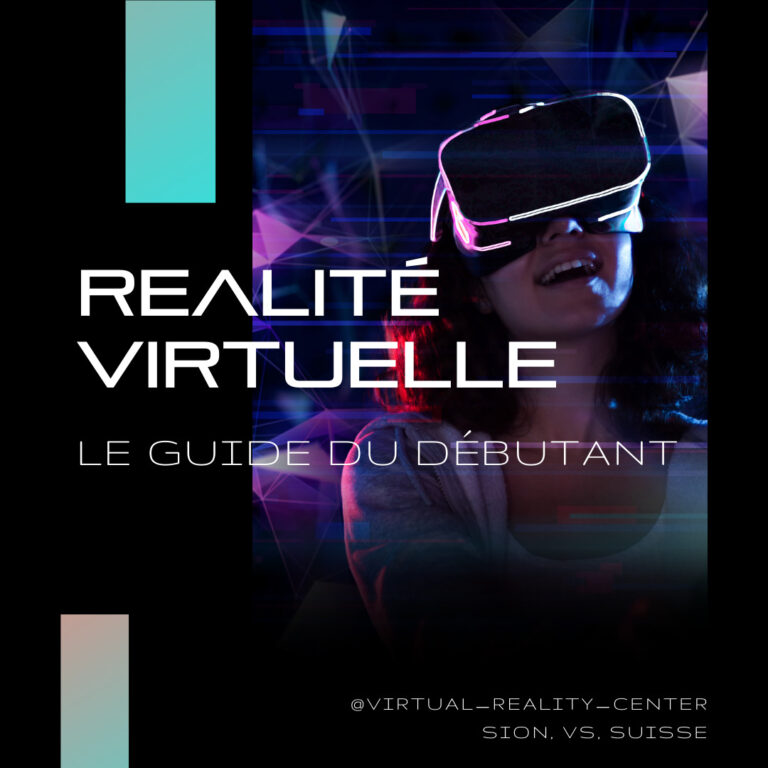
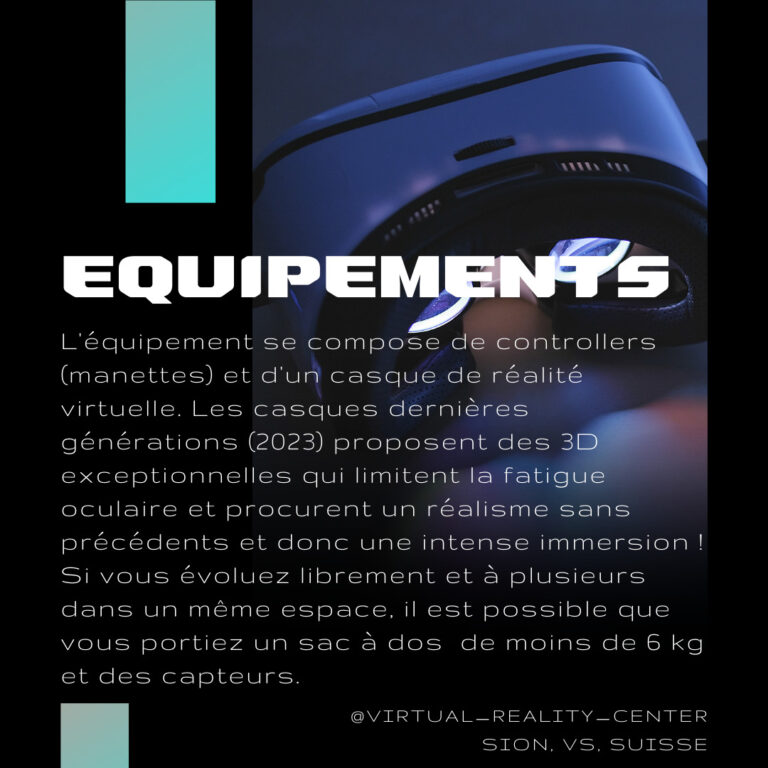
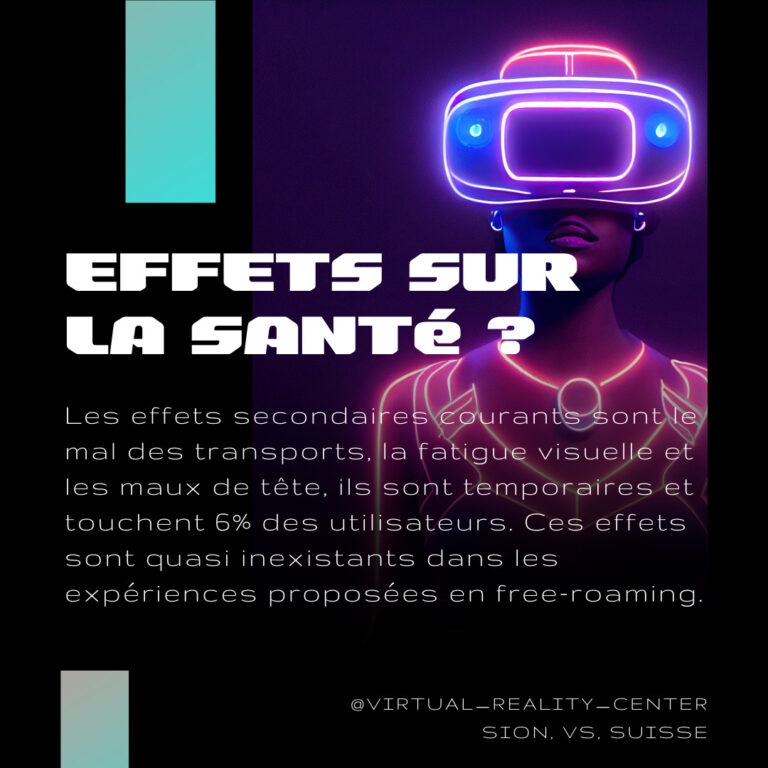
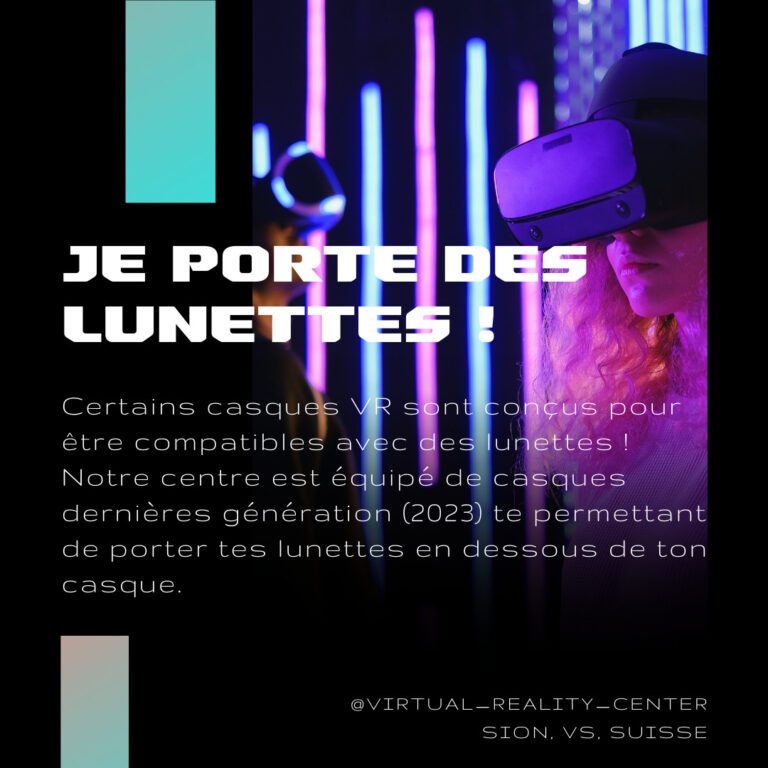
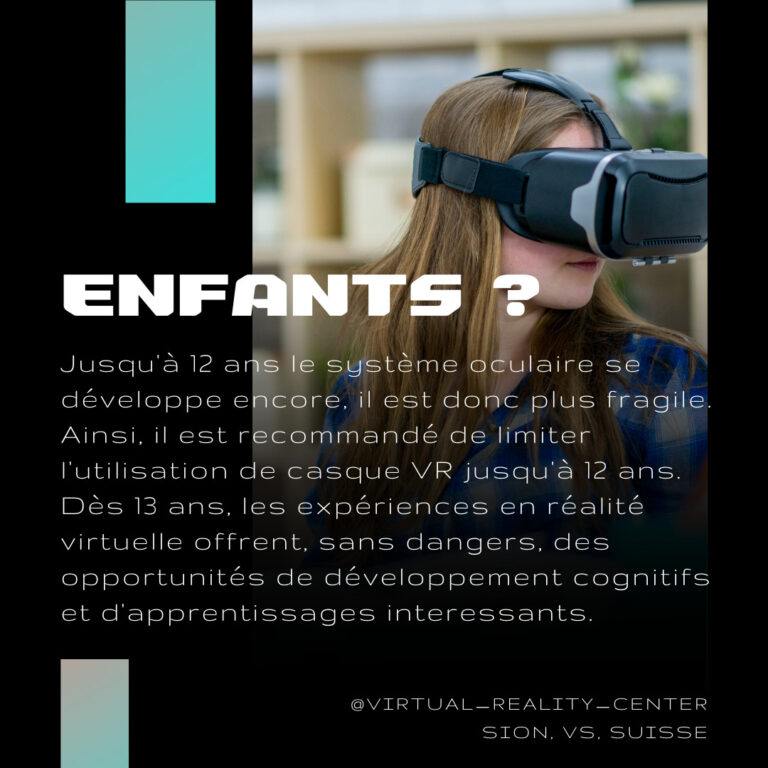
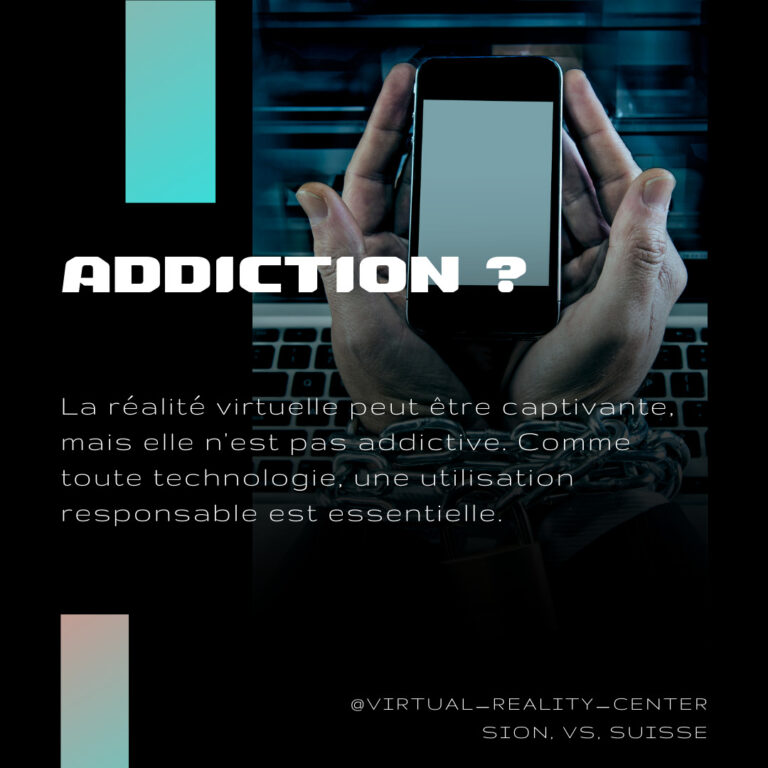
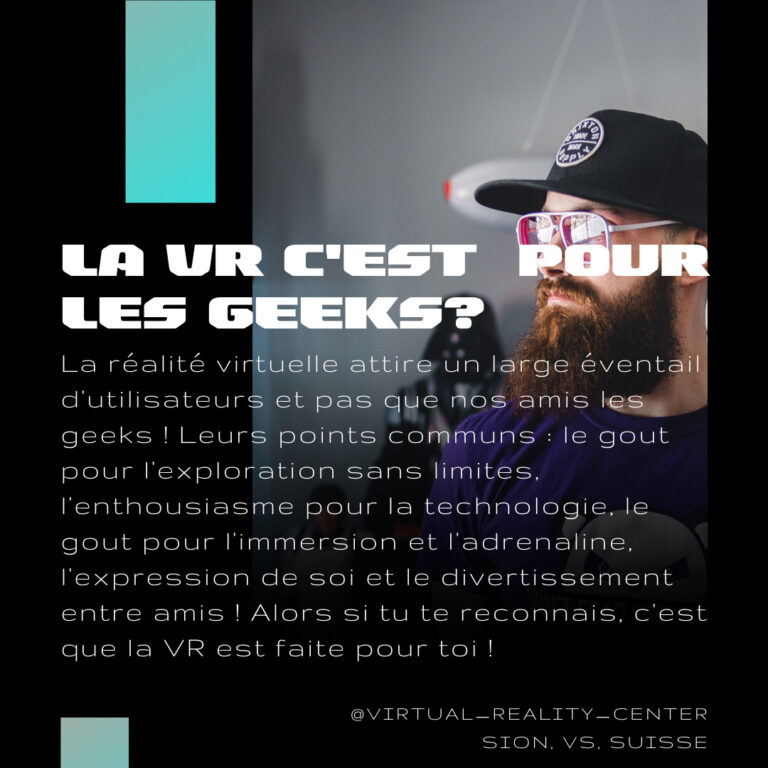
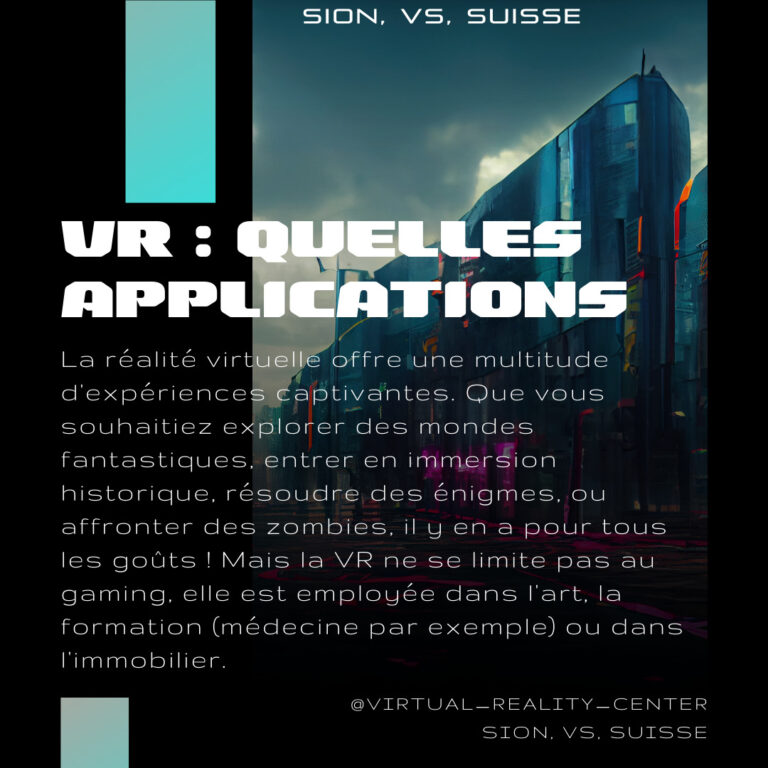
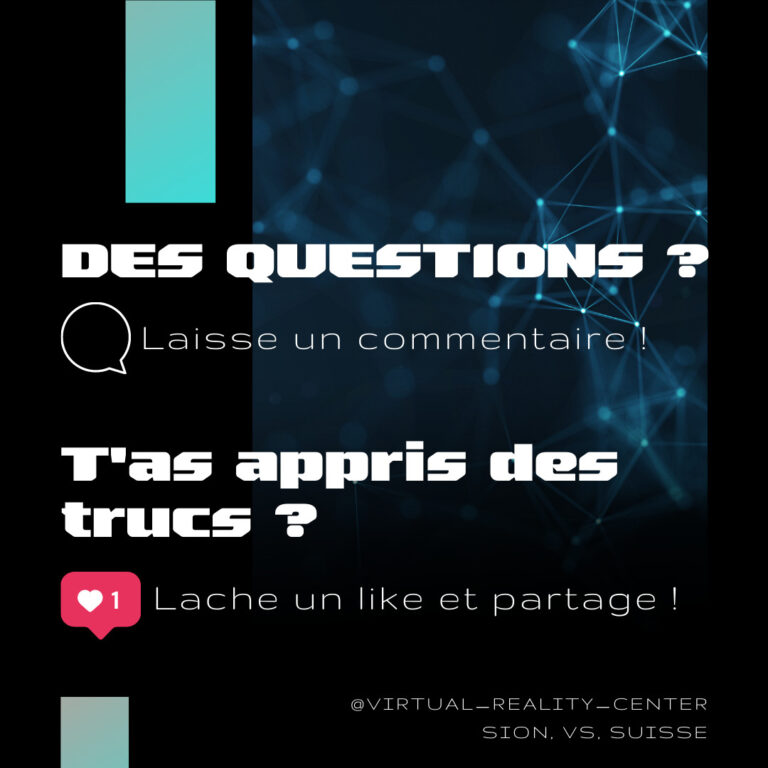
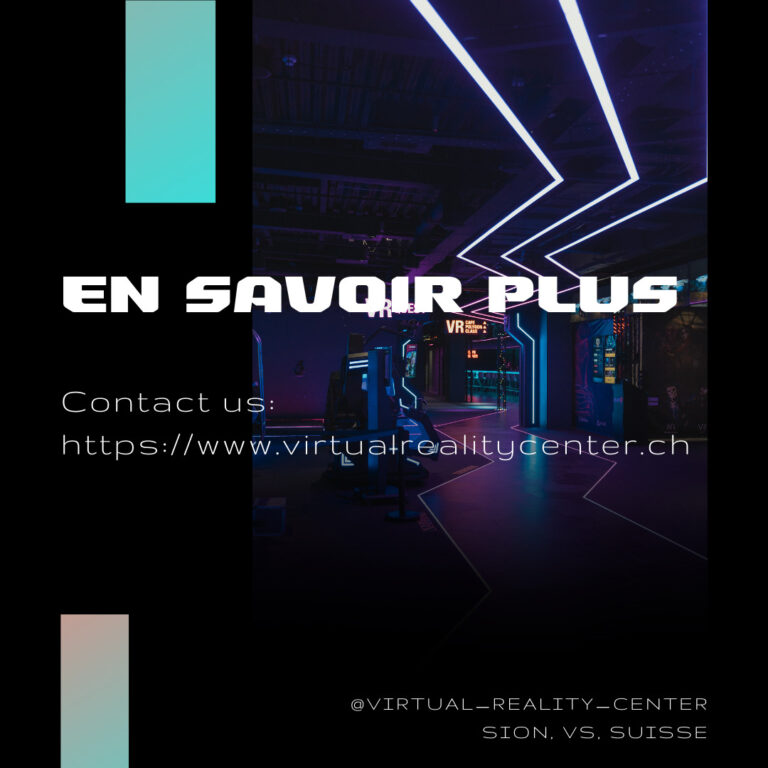
How will virtual reality be used in the future?
Virtual reality (VR) has fascinated people for many years because of its immersive, futuristic appeal. But beyond the buzz, what is the real potential of its practical applications in various fields in the medium and long term? Let's take a look at the promises of VR for the future.
VR for learning and training
One of the most promising uses of virtual reality is foreducation and pedagogy. VR offers the opportunity to immerse yourself in hyper-realistic scenarios, to acquire skills or knowledge in an active and engaging way.
Already adopted by a number of innovative schools and universities, VR is set to become increasingly popular. Generalise continuing vocational training in many sectors:
- Medicine
- Army and security
- Machine or drone piloting
- Top-level sport
- Rescue and crisis management
- Handling dangerous equipment
- And so on.
Immersing a learner in the heart of the action using immersive technologies considerably enhances memorization and reflexes compared with traditional theoretical courses.
VR will also make it possible to democratising certain courses that previously required expensive equipment. Students from all over the world will be able to handle sophisticated scientific equipment from the comfort of their own living rooms!
Immersive tourist experiences
Tourism is another sector that will be revolutionised by virtual reality technologies in the years to come.
Whether you're planning your future dream destination or visiting places that are physically inaccessible, VR will enable you to enjoy enriched tourist experiences. Visit virtual tours with 360° video content and ultra-realistic 3D reconstructions.
Museums and tourist sites will be able to create additional tours designed for VR headsets, allowing visitors to experience a new kind of experience. in-depth exploration from home. It's also an excellent way of making attractions accessible to people with reduced mobility.
For travellers, VR will make it easier to prepare their journeys by enabling them to identify locations in advance and familiarise themselves with exotic environments. Agents will be able to give their customers better advice thanks to these immersive visualisation tools.
Design and construction boosted by VR
In the manufacturing industry, one of the promising applications of virtual reality will be to facilitate the design of complex products.
Engineers will be able to view and manipulate life-size 3D models of cars, aircraft or buildings, for example. This will streamline the design process, enabling better-informed and faster decisions to be made on virtual prototypes.
On the construction side, professionals will be able to use digital twins of their future worksites in VR. They will be able to test different development scenarios and move around buildings even before they are constructed.
These virtual 3D doubles will also make it easier to predictive maintenance once the infrastructure has been built. Teams will be able to learn maintenance procedures in real-life conditions and anticipate certain problems.
VR to the rescue of patients
In the medical field, virtual reality is already providing significant psychological support for some patients. For example, it is an effective way of relieve pain during treatment or dressingsby creating immersive entertainment.
VR applications are also innovating to combat phobias and psychological disordersarachnophobia, agoraphobia, depression, post-traumatic stress, etc. They gently immerse patients in environments that trigger their anxiety, under the supervision of a therapist. This gradual exposure method helps them to overcome their fears over time.
For people with reduced mobility, VR will become a fabulous way to temporarily escape from their daily livesby freely exploring worlds that stimulate the mind and body.
In hospitals, VR will also improve the quality of patient care.Caregiver empathy and human relations by allowing them to see the world through the eyes of patients.
VR, the next digital interface?
In the longer term, some specialists anticipate that virtual reality interfaces will replace our computer screens as the gateway to the digital world.
VR systems could become our virtual office, with customisable 3D screens all around us, boosting productivity tenfold. This technology would thus be our window to the metaversThis immersive digital universe is set to develop alongside the physical world.
VR is probably one of the most promising innovations of the years to come, even if many challenges remain to be overcome: helmet ergonomics, respect for privacy, ethical considerations regarding certain uses, etc.
But the potential to improve our lives seems undeniable! Rapid advances in miniaturisation and more natural interfaces will undoubtedly make it indispensable in many aspects of our daily lives in the future.

